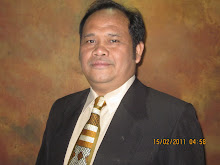Understanding the Dynamics of Indonesia's Economy: Challenges and Solutions Amid Global Uncertainty
Saturday, July 6, 2024
By Sanjoyo
In recent months, Indonesia's economy has shown various intriguing dynamics. Despite global challenges, Indonesia has managed to maintain stable economic growth while leveraging available opportunities. Let's take a closer look at the latest developments, notable issues, and potential solutions to address these challenges.
Stable Economic Growth. Indonesia's economy has demonstrated stable growth, with GDP projected at around 5% in 2023. This growth is supported by strong domestic consumption and continuous investment, particularly in infrastructure and technology sectors. Government policies, such as the Omnibus Law, have also provided a boost to the investment climate, although some challenges remain to be addressed.
Current Notable Issues
1. Food and Energy Prices. One of the main concerns is the rising prices of food and energy. The surge in rice and cooking oil prices is caused by global supply chain disruptions and climate changes affecting domestic production. This directly impacts people's purchasing power and economic stability.
2. Global Uncertainty. Global uncertainties, particularly due to the Russia-Ukraine war and international trade tensions, have negatively affected trade and investment. Fluctuations in commodity prices, such as oil and gas, also significantly impact Indonesia's economy.
3. Health and Post-Pandemic Economic Recovery. Although COVID-19 cases have declined, economic recovery still faces various challenges. The tourism and MSME sectors require full support to recover and contribute optimally to the economy.
4. Digitalization and Economic Transformation. Increasing adoption of technology and digitalization is a primary focus for both the government and the private sector. This transformation is crucial for improving efficiency and competitiveness in the global economy.
Propose Policies Direction.
To address these challenges, several strategic steps can be taken:
1. Price and Subsidy Policies. The government needs to strengthen price and subsidy policies to maintain food and energy price stability. Support for farmers and the agricultural sector should also be increased to boost domestic production.
2. Economic Diversification. Reducing dependency on commodities by strengthening the manufacturing and service sectors can enhance economic resilience. Investment in technology and innovation should be encouraged to create a more dynamic and competitive economy.
3. Infrastructure Strengthening. Continuous improvement of physical and digital infrastructure is necessary. Major infrastructure projects, such as the construction of toll roads, ports, and internet networks, need to be expedited to support long-term economic growth.
4. Support for MSMEs and Tourism. Expanded assistance and incentives for MSMEs and the tourism sector are essential. Training and financial access for MSMEs should be increased to support economic recovery and growth.
5. Global Risk Management. Developing risk mitigation strategies against global uncertainties is crucial. Diversifying export markets and strengthening international cooperation can effectively reduce the negative impacts of global uncertainties.
With appropriate policies and support from various stakeholders, Indonesia can continue to grow and overcome existing economic challenges. It is important to continuously monitor global and domestic developments and adjust policies as needed. By doing so, Indonesia can maintain its economic stability and progress amid global uncertainty.
Read more...